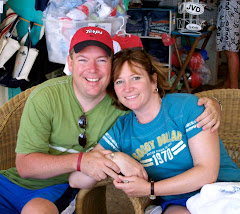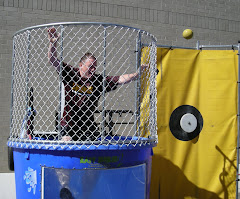Chicago Tribune, October 7, 2011
For many Americans, the years 2001-2010 were the roughest decade in memory. Our nation endured terrorism and war, temporary boom and lasting bust. Too many have been left feeling powerless in the recession's dismal aftermath.By one measure, though, Americans have become much more powerful. One of the nation's corporate chief executives — a group suffering from a serious image problem these days — did more than anyone to transform our lives with the power of computers. With iPods in 2001, iPhones in 2007 and iPads in 2010, he made the hard years of the recent past easier, more productive, more beautiful to behold.
Thanks, Steve. We needed that.
History will remember Steve Jobs as an innovator, fortune builder and technology genius. His legacy holds an important lesson for dealing with economic adversity today.
Jobs was, in his words, "a very public failure." In 1985, he got kicked out of the company he co-founded, Apple Inc.
The focus of his adult life disappeared. He awkwardly apologized to people he thought he had let down. He felt rejected. He didn't know what to do next.
Those same hopeless feelings probably sound familiar to the millions targeted in brutal layoffs over the last four years.
Like so many others today, Jobs started over.
In the 10 years that followed, he kept innovating, making something from nothing, and not always succeeding. He unveiled the $6,500 NeXT personal computer, which didn't sell. Through his Pixar animation studios, he also gave us Woody and Buzz from the beloved film "Toy Story," which sold tickets by the millions.
Everybody fails. It's what comes next that counts.
Jobs wormed his way back into Apple, first as an adviser, then as interim chief executive, then by dropping the "interim." What followed must be among the greatest comebacks in business.
He proved himself to be the Thomas Edison of our age: prickly, yes, but adept at combining technology and business to change peoples' lives.
Edison has the more impressive portfolio — you can get by without your iPod more easily than you can without lightbulbs. No, really, you can.
But Jobs has the more impressive following.
For many people who heard the news of Jobs' death, there was an immediate lurch of sadness.
On the sidewalk beside the Apple Store along Chicago's North Michigan Avenue, Jobs' fans on Thursday created a shrine to his memory. They left flowers, lit candles and placed fresh apples on the concrete. The same spontaneous tributes occurred at Apple Stores in London, Paris, Tokyo and elsewhere around the world.
"I promise to always take the next big step," said one message left for Jobs in Chicago.
"Let's go invent tomorrow," said another, invoking a Jobs quote.
One scribbled post-it asked if the iPhone's GPS could be used to locate its originator in heaven. Definitely a question for the store's Genius Bar.
Facebook and Twitter lit up with people reminiscing about their first iPod or Macintosh. "Before I could walk, I was playing and learning on an Apple computer," one fan began.
"It's strange, realizing how much someone you never knew changed your life," another wrote. "Of course I'm typing this on my beloved MacBook Pro."
Author Martin Lindstrom wrote in a recent New York Times op-ed that brain scans of people reacting to a vibrating iPhone showed they "responded to the sound of their phones as they would respond to the presence or proximity of a girlfriend, boyfriend or family member. In short, the subject didn't demonstrate the classic brain-based signs of addiction. Instead, they loved their iPhones."
In 2005, Jobs gave the commencement speech at Stanford University that makes his most fitting eulogy. Even though he told the graduating students that his cancer had been cured, he shared his thoughts about facing death since his diagnosis about a year earlier. Thinking about death every day helped him overcome the natural fear of failure, he told them.
Drawing on his 1970s California hippie roots, Jobs invoked The Whole Earth Catalog, a hodgepodge of photos, articles and neat ideas — "one of the bibles of my generation," as Jobs put it. He remembered its slogan: "Stay hungry. Stay foolish." As Jobs said, "I have always wished that for myself. And now, as you graduate to begin anew, I wish that for you."
Stay hungry. Stay foolish.
Thanks Steve for making my life more creative and enjoyable!



















No comments:
Post a Comment